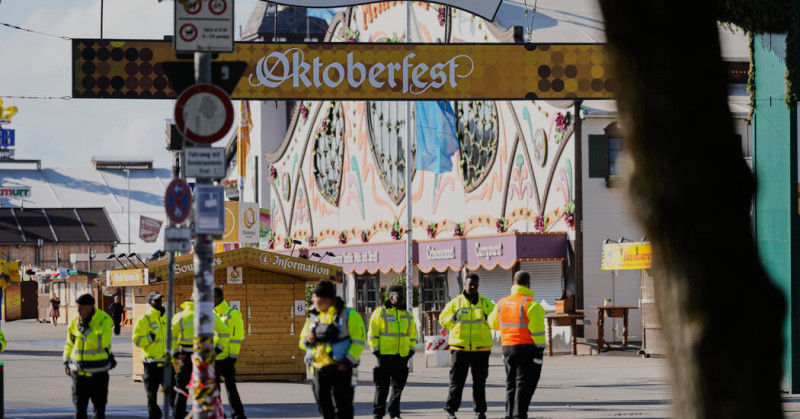In the early hours of October 1, 2025, Munich's bustling Oktoberfest grounds fell eerily silent as police locked down the site following a chilling bomb threat. The disruption stemmed from a violent family dispute in the city's northern Lerchenau district, where explosions and a raging fire claimed at least one life. Authorities quickly cordoned off the area, turning what should have been a day of revelry into one of tense uncertainty.
The suspect, a 57-year-old German man, apparently ignited the blaze in his parents' home amid heated arguments. Neighbors reported hearing loud bangs—possibly gunshots or detonations—around 4:40 a.m., prompting a swift emergency response. Inside, investigators uncovered multiple explosive devices rigged as traps, a grim discovery that escalated the situation. Two others were injured: the man's daughter and his elderly mother, both hospitalized with non-life-threatening wounds. The perpetrator himself was later found dead near Lake Lerchenau, having taken his own life; a backpack with yet another explosive had to be carefully defused by bomb squads.
However, the threat's mention of Oktoberfest forced a broader shutdown. Tens of thousands of visitors, many in traditional lederhosen and dirndls, were turned away as explosive-sniffing dogs and special forces swept the Theresienwiese fairgrounds. Indeed, the festival remained closed until 5:30 p.m., missing hours of beer tents and merrymaking. Police emphasized there was no direct danger to the public, yet the episode exposed vulnerabilities at one of the world's largest folk festivals, drawing over 6 million attendees annually.
By evening, the gates swung open again, and crowds trickled back in, determined to salvage the day. Munich officials downplayed any terrorism links, framing it as a tragic domestic fallout. Moreover, enhanced security measures lingered, a subtle reminder of the festival's undercurrents of risk. As the beer flows resume, one can't help but wonder how such personal vendettas ripple into public spectacles.

